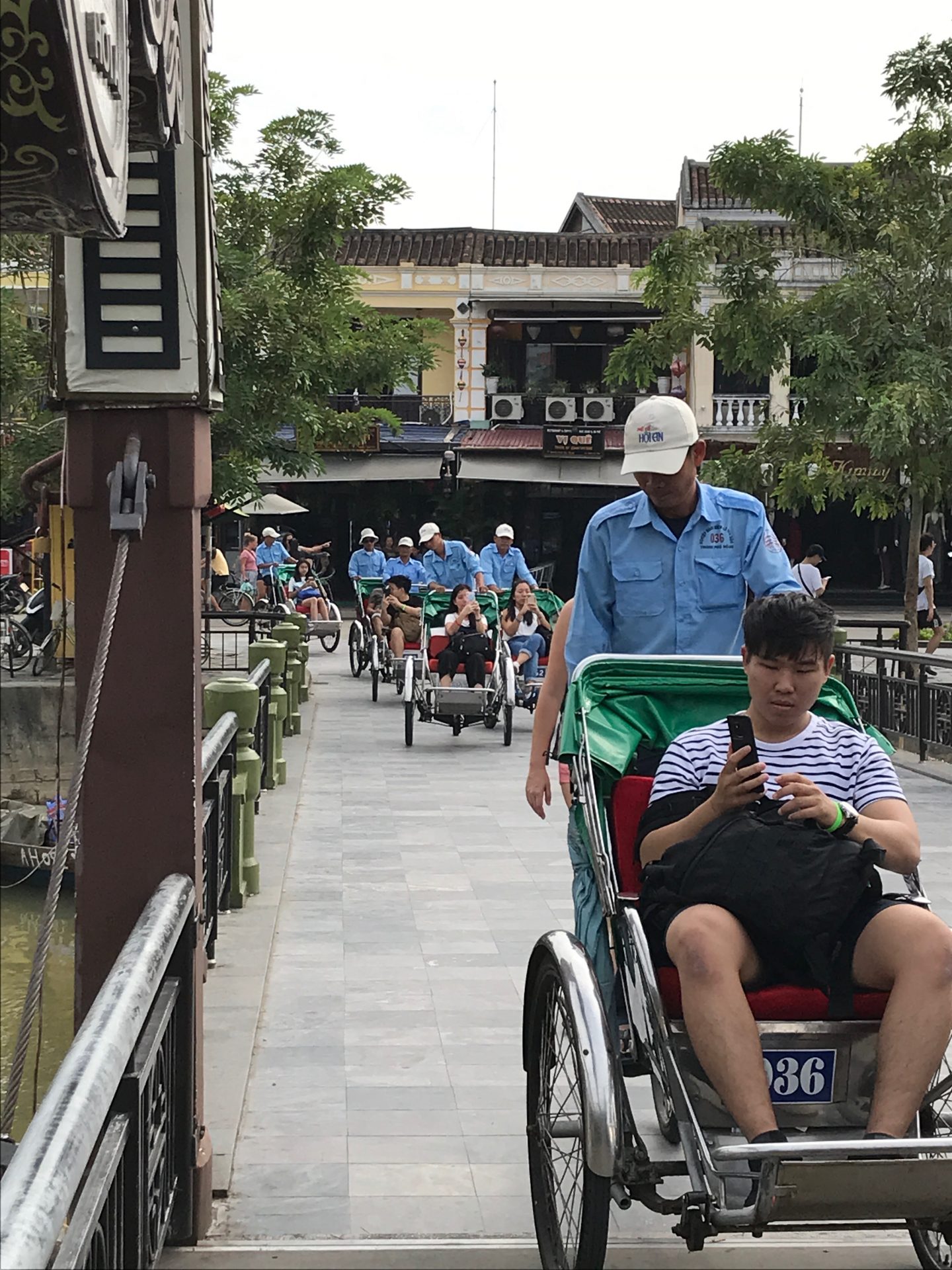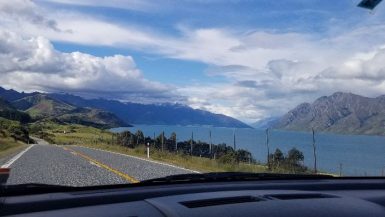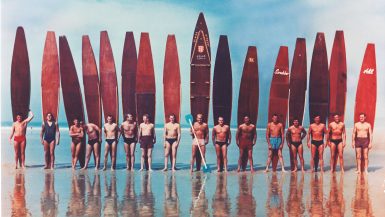“Are you a backpacker, too?” When a German 20-something asked me this question in Ho Chi Minh City recently, I cringed. We are traveling around the world with only our backpacks, so the answer is certainly yes. However, in my reticence to respond that way, a realization donned on me…
I am a self-loathing tourist. I hide from the hordes of Chinese and Korean tourists in matching shirts–and once, wigs! I run the other way when I see a tour bus. When we have repeatedly crisscrossed paths with fellow tourists—people we’ve met in cooking classes, boat tours, and adventure excursions who happen to be visiting the exact same spots that we are—it chafes against my American upbringing as a special snowflake. I don’t want to be herded, but to freely wander markets undetected and stumble upon an authentic pocket of culture. When I travel, I want to be the only fly on the wall.
Put “Off the Beaten Path” In Perspective
Recently, I’ve recognized that my dissociation from fellow travelers is both unfair and unrealistic, but that it is grounded in a desire to see each place I visit honestly. I’ve recognized the irony in this quest for “authentic” travel as a western tourist in Asia and put these self-righteous feelings in a bit of perspective.
We’re all using the same map: One page of our Lonely Planet is titled, “Southeast Asia—Off the Beaten Path.” You could reach out your hand in any direction and touch a tourist in sensible shoes poring over a translation of this tome. While the guide books can be good for local businesses, simply getting published in Lonely Planet can alter the character of a restaurant or experience as collateral damage. For instance, Victor and I love mountain trekking, but we took Sapa, Vietnam off our itinerary when we noticed hiking tours there being advertised at every travel agency in the country. Sapa’s tourism has exploded since it was first described in the guide books, and the lush region is now reported to be somewhat overrun. Don’t get me wrong, Lonely Planet is absolutely vital. It gave us an incredible cooking class in Vietnam and a necessary grounding in the climate and culture of each of the places we’ve visited. However, the mass-produced guide book and the path less traveled are a contradiction in terms, and Lonely Planet should be approached with healthy skepticism.
Some things merit crowds! Don’t let your ego and quest for independence keep you from seeing wonders of the world. Yes, you will never be the only person at Angkor Wat or Halong Bay, however they are marveled at for good reason. In those cases, as Baudelaire writes, we must “bathe in the crowd” and enjoy the “universal communion” that comes with appreciating at a natural wonder or awe-inspiring work of human creation.
My presence will never be subtle: I am not Asian. I am blonde, 5’9, and loud. I am clearly and visibly a foreigner in this region. My simple presence and the US dollars in my pocket pervert any notion of authenticity. This shows up mostly when shopkeepers beckon me with the hard-sell to buy something in their market stalls or when children wave and scream “hello” as I pass by on a morning run. While you may think you are seeing something “authentic,” tourism engineered for the Western gaze and wallet is an enormous industry, and colonialism has irrevocably touched many places in this region. Living somewhere long-term is the only real way to remove the foreigner label stamped on your forehead.
I am not the barometer of authenticity: Often, I’ve entered a town and thought, “this doesn’t feel authentic.” This is an urge I feel the need to check and re-assess. How am I to know what’s authentic in a place I’ve never seen before? Places do not always conform to your pre-conceived notion of what they will look and feel like. In searching for authenticity, don’t simply color in the lines of what you wanted it to be like.
How to Lessen Your Tourist Footprint
While I’ve checked the egotism of questing for authenticity, it is certainly worth continuing to search for the path less traveled. It isn’t really travel if you only engage with people who are waiting to cater to your needs on your terms. If you are yearning to step off the trodden tourist trail, here are some tips I’ve picked up along the way.
- Off the beaten path is sometimes right in front of you: Sometimes the best local spots are hidden in plain sight down a side street. Keep your eyes peeled for street food carts crowded with locals or workers on a quick lunch break. We’ve had some of our best meals squatting on plastic stools on the street corner where something smells delicious.
- Don’t just go to snap a few pictures: If you’re going to a market, engage with the sellers. Be a participant, not just a voyeur. Ask questions and buy something. Instagram is not a sufficient reason for a tourist destination. If your social media feed is crowded with pictures of a single spot, ask yourself: what’s nearby that’s being overlooked?
- Ask the locals: My dad always asks hotel staff, “where would you go for dinner. Not where do you think I should go as a patron of this hotel, but where would you really eat?” If you are interested in staying away from crowds of “falang” (Westerners), try to find what the locals call quality. In Asia, this often means renting a motorbike and poking up into the hills or squatting on a stool for an afternoon coffee or noodle soup. It can also sometimes mean tangy, fishy, or super sweet flavors that you may not like!
- Embrace imperfection, inconvenience, and uncertainty: When we arrived by ferry at Laster Jony’s guest house in north Sumatra (a 6 hour drive from the airport and 8 hours from our next destination), it didn’t have mosquito nets, flushing toilets, in-room wifi, or an English speaker to greet us at reception. We were skeptical that this place would be comfortable for our stay on Lake Toba. However, when Hamlet (the main English-speaking proprietor) caught fish in his canoe, and his sister Julianna grilled to perfection, we were filled with the reassuring sense that they weren’t doing anything special for us. They were simply living their lives, and including us in it. This experience was not our most comfortable travel or hotel experience, but it felt like a real slice of life in this small corner of the world.
- How you show up matters: While you will never blend in, you can learn to respect where you are. Listen before speaking, learn to speak the language (even small phrases), ask people about their family (always a relatable topic), and read up on local cultural norms to avoid major faux pas that highlight your foreignness.
“Il n’est pas donné à chacun de prendre un bain de multitude: jouir de la foule est un art.”
“Not everyone can bathe in the throng: enjoying a crowd is an art.”
Charles Baudelaire, “The Spleen of Paris”





Leave a reply